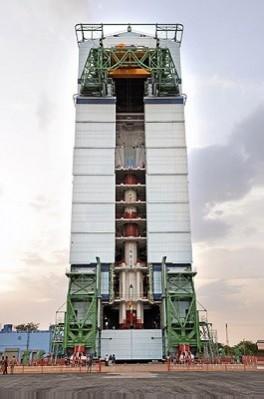
The Indian Space Research Organisation (ISRO) is all set to launch the country's first navigational satellite aboard a polar satellite launch vehicle (PSLV) on 1 July.
The Indian Regional Navigation Satellite System-1A (IRNSS-1A) will be the first of the seven satellites to be launched to create an independent navigational system similar to US' Global Positioning system (GPS). IRNSS has been designed to provide accurate position information services to users in India as well as in regions extending up to 1,500 km from its boundary, which is its key service area.
The 44-metre tall PSLV-C22 launch vehicle, carrying IRNSS-1A, will take off from Satish Dhawan Space Centre in Sriharikota at 23:41 hours IST (1813 GMT and 2:13 pm EDT) on 1 July. The 64-and-a-half-hour countdown for the launch commenced at 7:11 hrs (IST) on 29 June.
The navigational satellite was expected to be launched on 12 June. But a technical glitch delayed the launch by more than a fortnight. Global checks as well as launch rehearsal were successfully completed in the last two days. "Propellant filling operations of Fourth Stage (PS4) and Reaction Control (RCT) of First Stage (PS1) are completed," said a report posted in ISRO website.
Where to Watch Live
The launch will be live telecast from Doordarshan.
Webcast of launch will be available on 1 July from 23:10 hours (IST) onwards. To view the webcast check this website: http://webcast.gov.in/live/
Doordarshan will also be telecasting a documentary titled 'IRNSS-1A - The Star of Navigation' (To get more details on the transmission timings of the documentary, click here).
IRNSS-1A
IRNSS-1A has a lift-off mass of 1,425 kg and dry mass of 614 kg. The satellite carries two types of payloads - navigational payload and ranging payload. The navigational payload will transmit navigation service signals to the users. The ranging payload will have a C-band transponder that assists in accurate determination of the range of the satellite. (For more details about the IRNSS satellite, PSLV launch vehicle, click here).
At least four satellites are needed for a vehicle or a smartphone to get signals and estimate the positional fix. ISRO will be launching a total of seven satellites for creating an independent navigational system. After the successful launch of the first satellite, the remaining six satellites are expected to be launched by 2014-15.
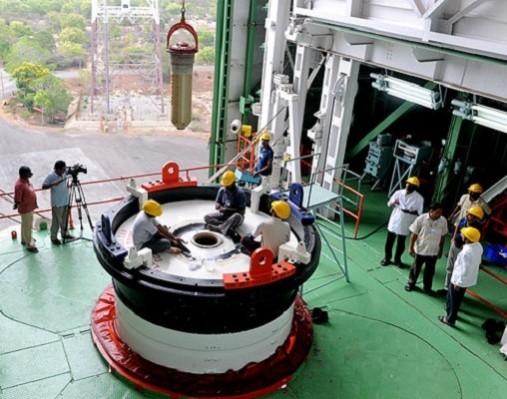
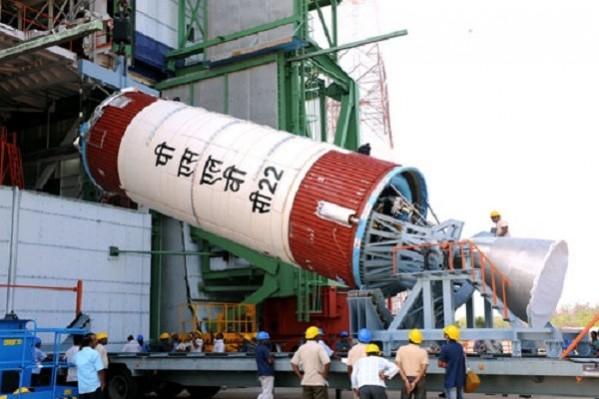
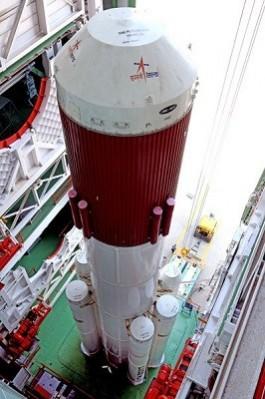
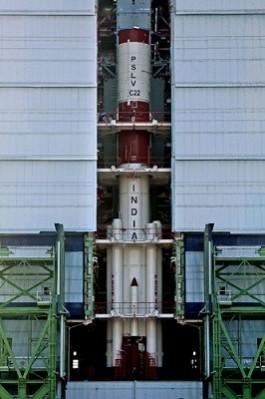






![Miss Universe 2024: India's Rhea Singha slayed swimsuit round but failed to reach Top 12 [Watch]](https://data1.ibtimes.co.in/en/full/806361/miss-universe-2024-indias-rhea-singha-slayed-swimsuit-round-failed-reach-top-12-watch.jpg?w=220&h=138)



